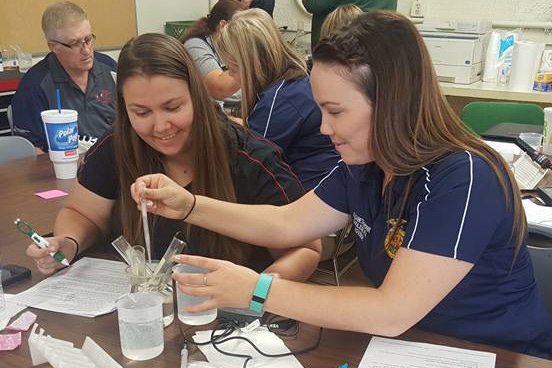August 15, 2017

There’s generally widespread support to teach young people about agriculture, lifelong skills, and leadership through 4-H, FFA, or agricultural education in schools. Sharing such values help young people learn about agriculture and harness skills to become a productive adult.
In August, the Arizona Agricultural Education-FFA Foundation released a statement on a critical shortage of agriculture teachers and FFA advisors in recent years in the Grand Canyon State.
The University of Arizona’s Robert Torres, president-elect of the American Association for Agricultural Education, said, “If we don’t have quality teachers in the classroom it affects agricultural education and the ability to attract students to the agriculture career field and preparing them to function through that career.”
Widespread problem
One estimate suggests the ag teacher shortage exists in about 30 states with about 200-400 unfilled positions which impacts tens of thousands of students, says Ellen Thompson of the National Teach Ag Campaign. In Arizona, she says the ag teacher shortage last year included about 20 unfilled positions. About 1,600 students missed the opportunity to learn about the business of agriculture.
In California, Jim Aschwanden of the California Agricultural Teachers Association and California Future Farmers of America says a chronic shortage of ag teachers has existed in the Golden State for several years, including about a dozen unfilled positions this year.
He places part of the blame on top level personnel at the California Department of Education. Other reasons can include retirements and teachers who decide to leave the profession.
Ray of hope
California has a golden opportunity to turn the ag teacher shortage around and further invest in agriculture education. Aschwanden says many students outside of agriculture are very interested in taking agriculture-based biology and science classes.
“They like the fact that our ag science courses receive college entrance acceptance," he says. "In many school districts, they can take biology, physics, and those types of courses and be accepted by the UC and CSU systems for admission purposes.”
Ag education is at a crossroads where more financial funds are critical to advance it. At stake is the development of an educated workforce to lead the nation’s highly successful agricultural industry into the future.
You May Also Like




